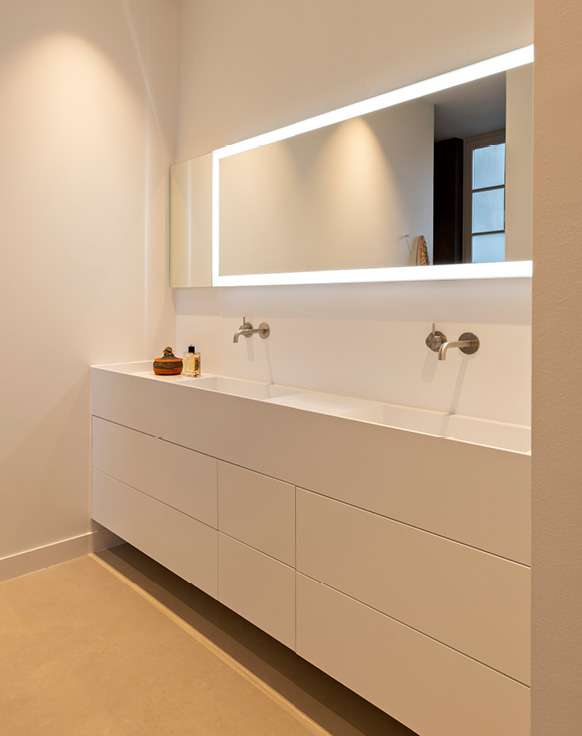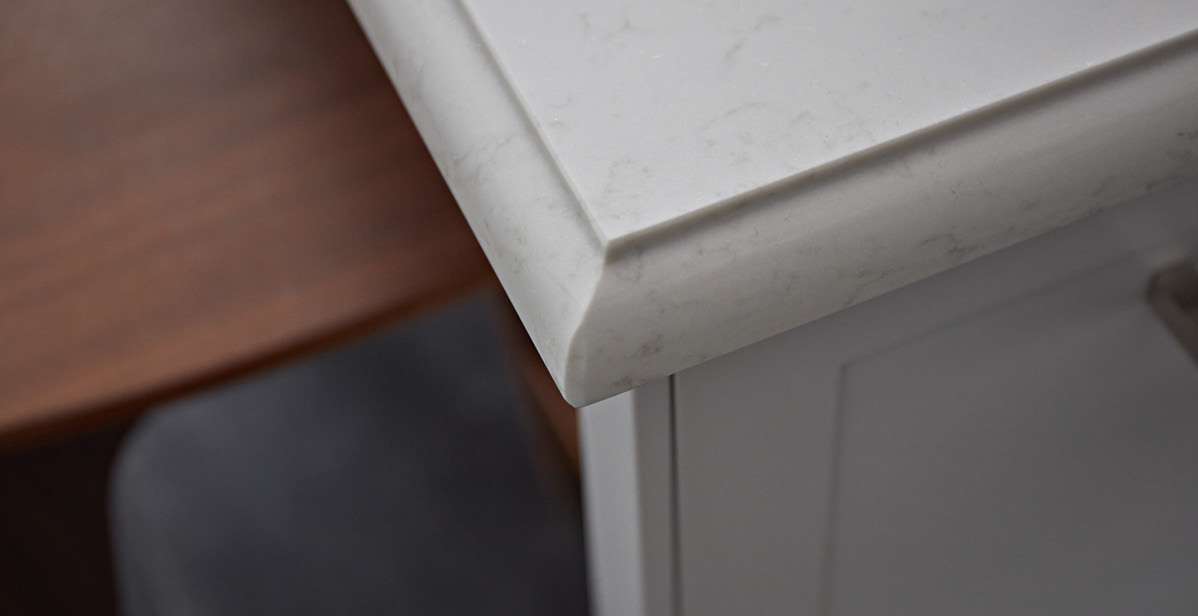
How to choose the perfect stone for your furniture
Each stone, natural or manufactured, is unique, adding a touch of warmth and exclusivity to your furniture. At Timber Tailor, we guide you in choosing the perfect stone that aligns with your needs. Plus, we provide a maintenance guide to ensure your chosen stone retains its natural beauty over time.
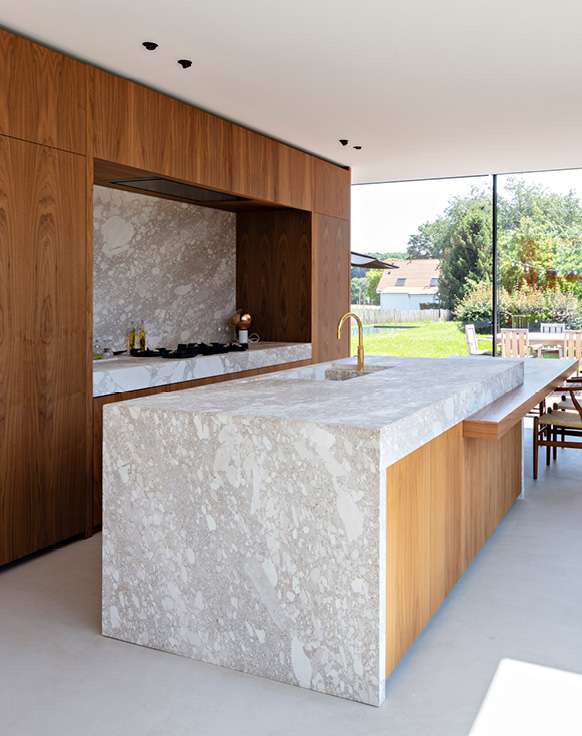
Marble
Marble, as a natural stone, acquires a patina, reflecting its living character. Opting for marble is embracing the authenticity of a stone that breathes and evolves over time.
Regularly clean marble with warm water and a soft cloth. For tough stains, use pH-neutral soap like Marseille soap. Avoid acidic substances like lemon or vinegar. Prevent thermal shocks and scratches by using coasters, trivets, and cutting boards.
Granite
Granite is a hard, non-limestone natural stone with low porosity, making it resistant to stains and household acids. It withstands scratches well except from ceramic knives, so using a cutting board is recommended.
For maintenance, you can use a household degreaser diluted in water with a non-abrasive sponge. Let the product sit for five minutes if needed. To remove lime deposits, a vinegar-based household product can also be used.
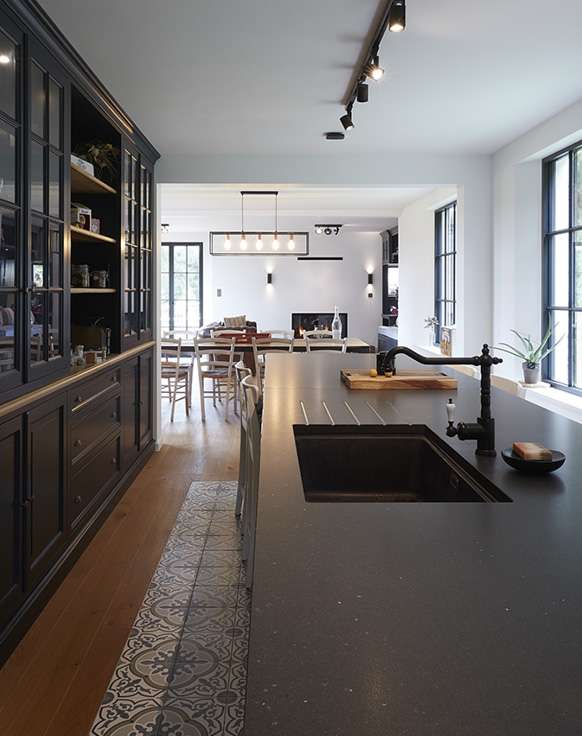
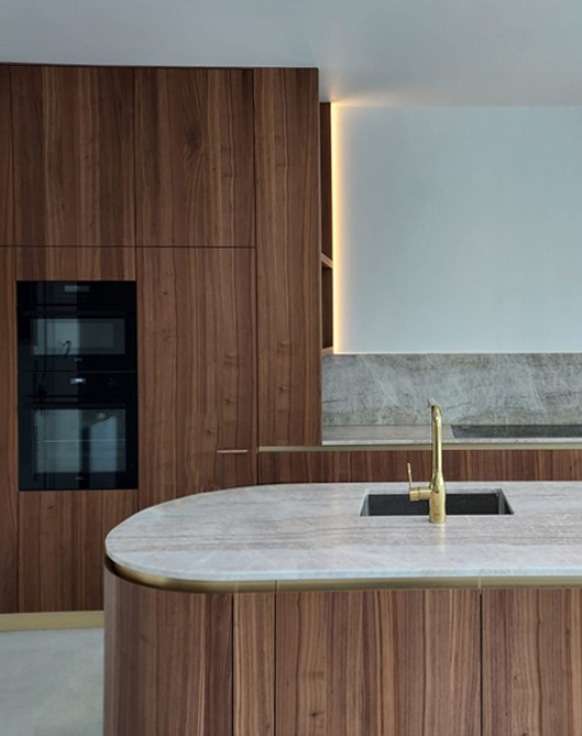
Quartzite
Quartzite is a natural stone that is also hard and resistant than granite. These characteristics make this stone a plane of work easy to clean and maintain.
For regular cleaning, use pH-neutral soap or dishwashing liquid with warm water and a soft cloth. Avoid acidic cleaners like vinegar or lemon juice. Quartzites are naturally porous, so wipe spills immediately and use coasters. Avoid abrasive sponges or cleaners to maintain surface integrity and prevent scratches.
Quartz
Composite quartz is a manufactured product composed of 95% natural quartz. This surface requires minimal maintenance and is characterized by its great resistance.
For daily cleaning, use mild soap and warm water, rinse thoroughly, and dry. For tougher stains, use a household degreaser or vinegar-based cleaner. Avoid alkaline or harsh cleaners and always use heat-resistant supports to protect against high temperatures and UV rays.
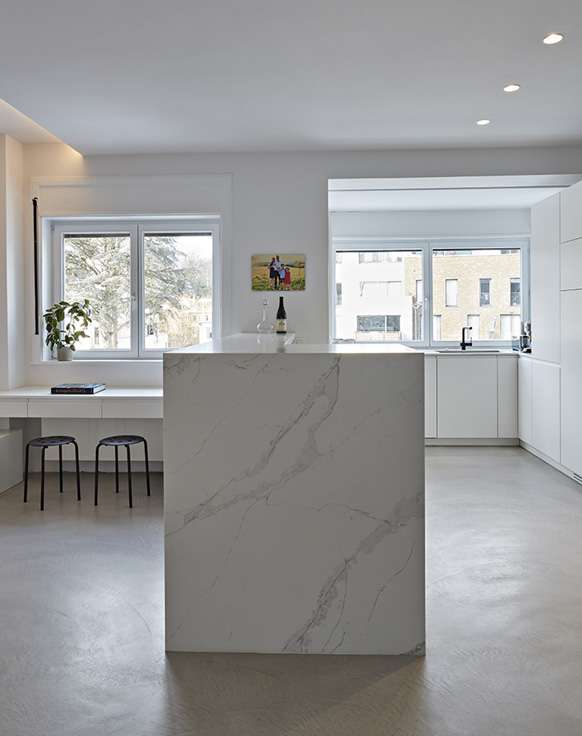
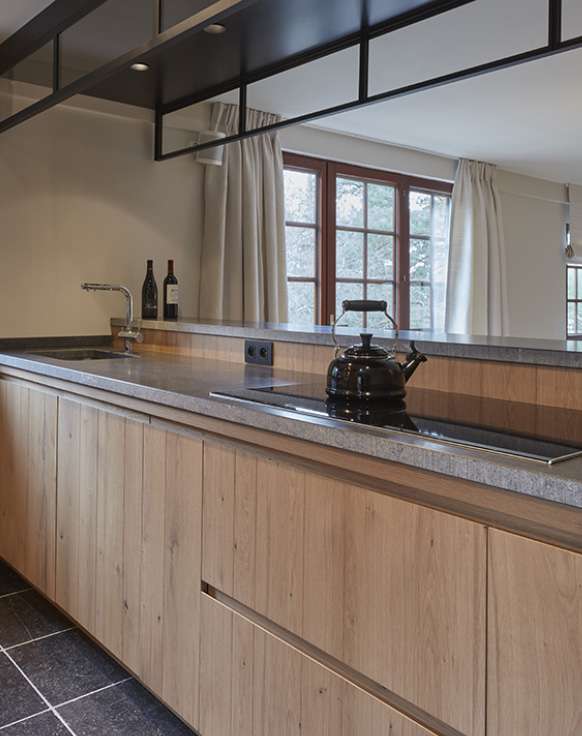
Blue stone
Blue stone is a natural and living material, which evolves over time, with a patina. Its non-porosity natural protects it against daily aggressions. Maintaining bluestone is straightforward; cleaning with clear water is usually sufficient, a small amount of mild soap like Marseille soap can be used.
Additionally, you can apply a hydrophobic and/or oleophobic product to the bluestone. Proceed with caution as some products may intensify the stone’s color and patina effect.
Ceramic
Ceramic is a manufactured product with attractive durability characteristics. Thanks to its strong resistance, it combines elegance and practicality, simplifying maintenance.
Due to its non-porosity, ceramic does not absorb liquids and thus resists stains well. For maintenance, you can use a household degreaser diluted in water. To remove lime deposits, use a vinegar-based product. Ceramic can be sensitive to impacts, so avoid impacts, especially on the edges of the countertop.
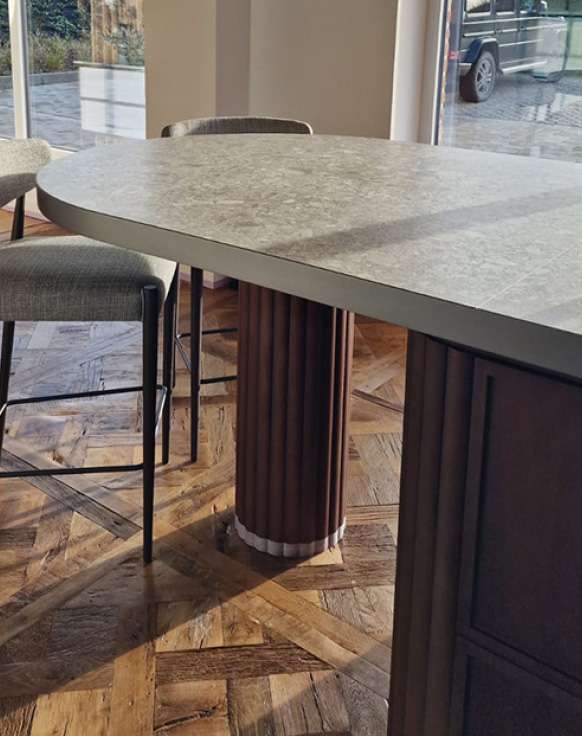
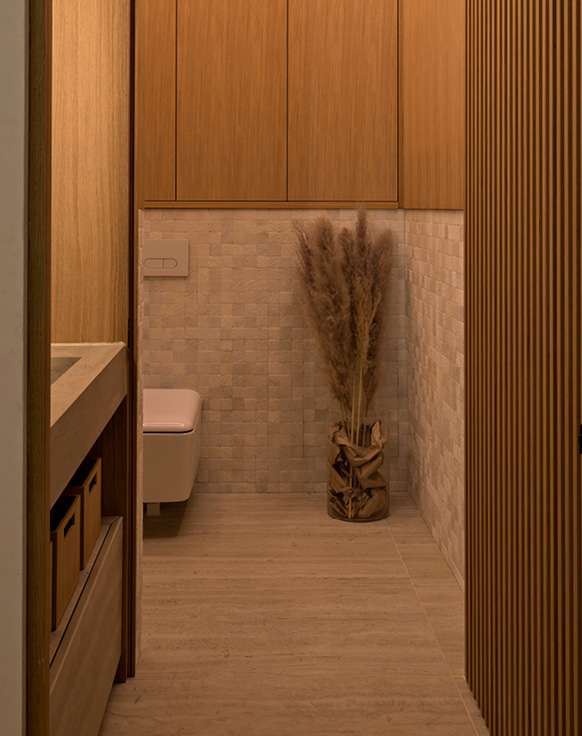
Travertine
Travertine is a natural stone appreciated for its pinkish beige shades. Elegant and durable material, it enhances interiors with its soft tones and natural appearance.
For regular cleaning, use a mild pH-neutral soap like Marseille soap or black soap. It’s important to immediately scrub to prevent stains from penetrating. Travertine is sensitive to acidic products, especially vinegar and red wine. Therefore, avoid using abrasive or acidic household products such as vinegar, products containing lemon, ammonia, or bleach.
Corian
Corian® is a massive and homogeneous composite material on its entire thickness. Its resistance is accompanied by the ability to be repaired on site, facilitating its durability over time.
For routine maintenance, a slightly damp microfiber cloth paired with a standard cleaner is sufficient. For stronger stains, use a cream abrasive detergent, then rinse thoroughly with hot water. If you notice lime deposits, apply a vinegar-based product.
